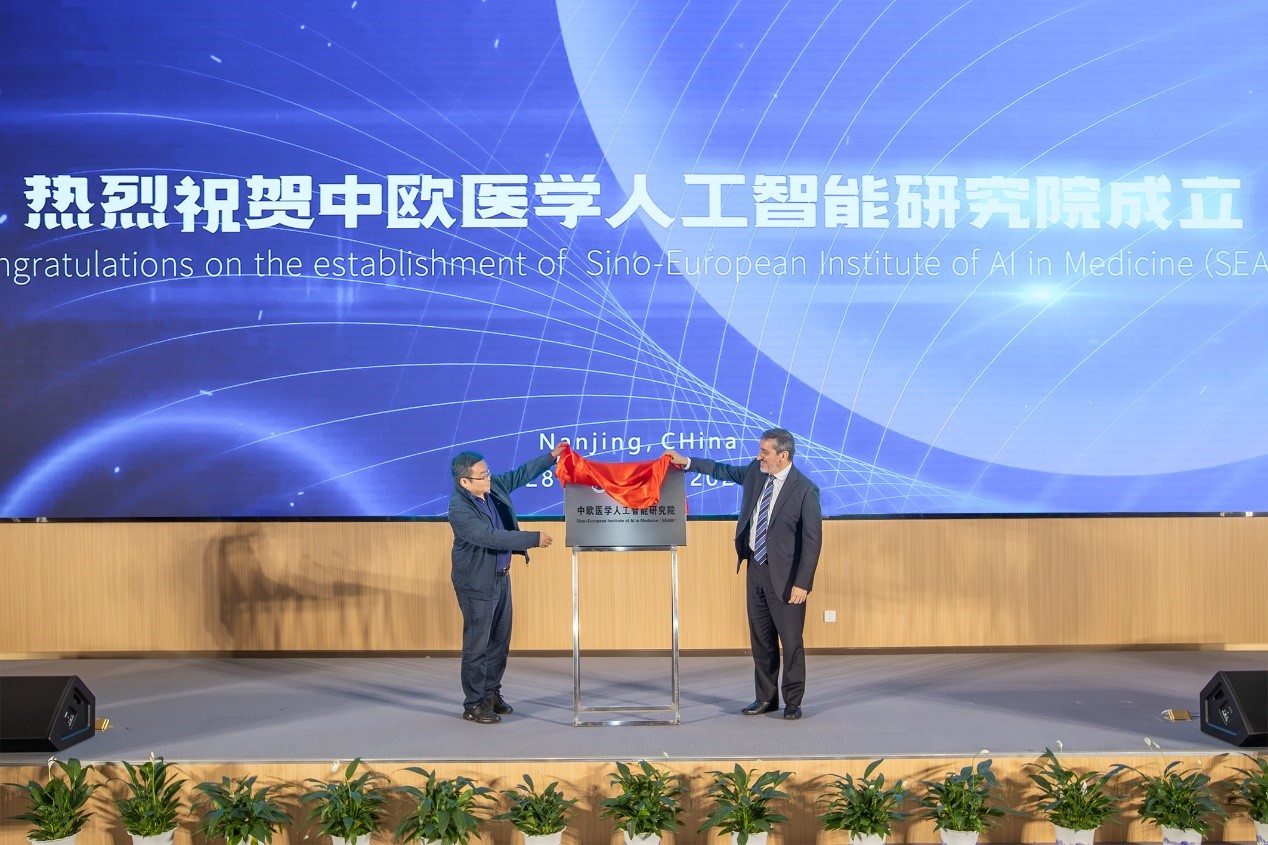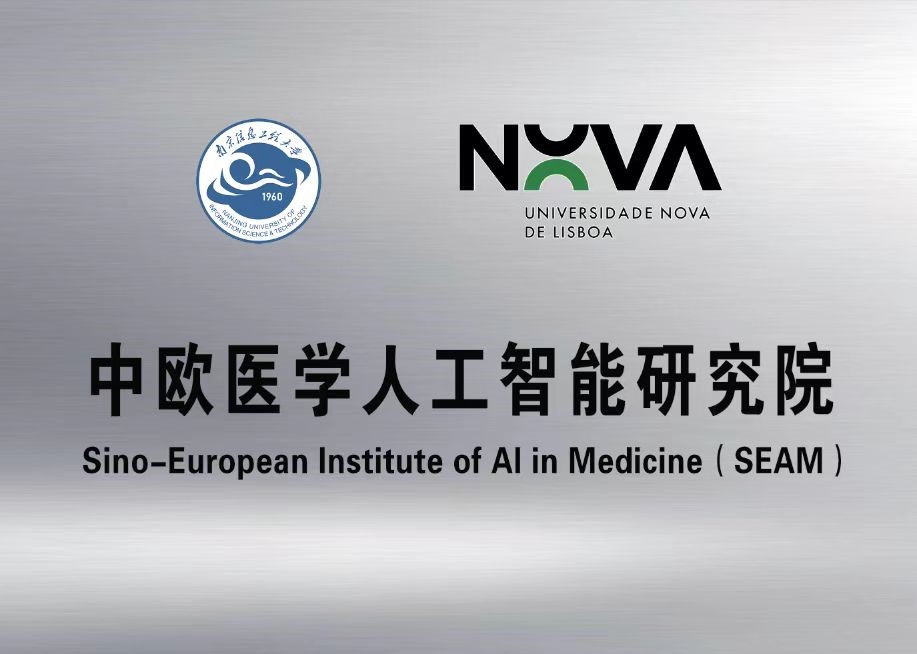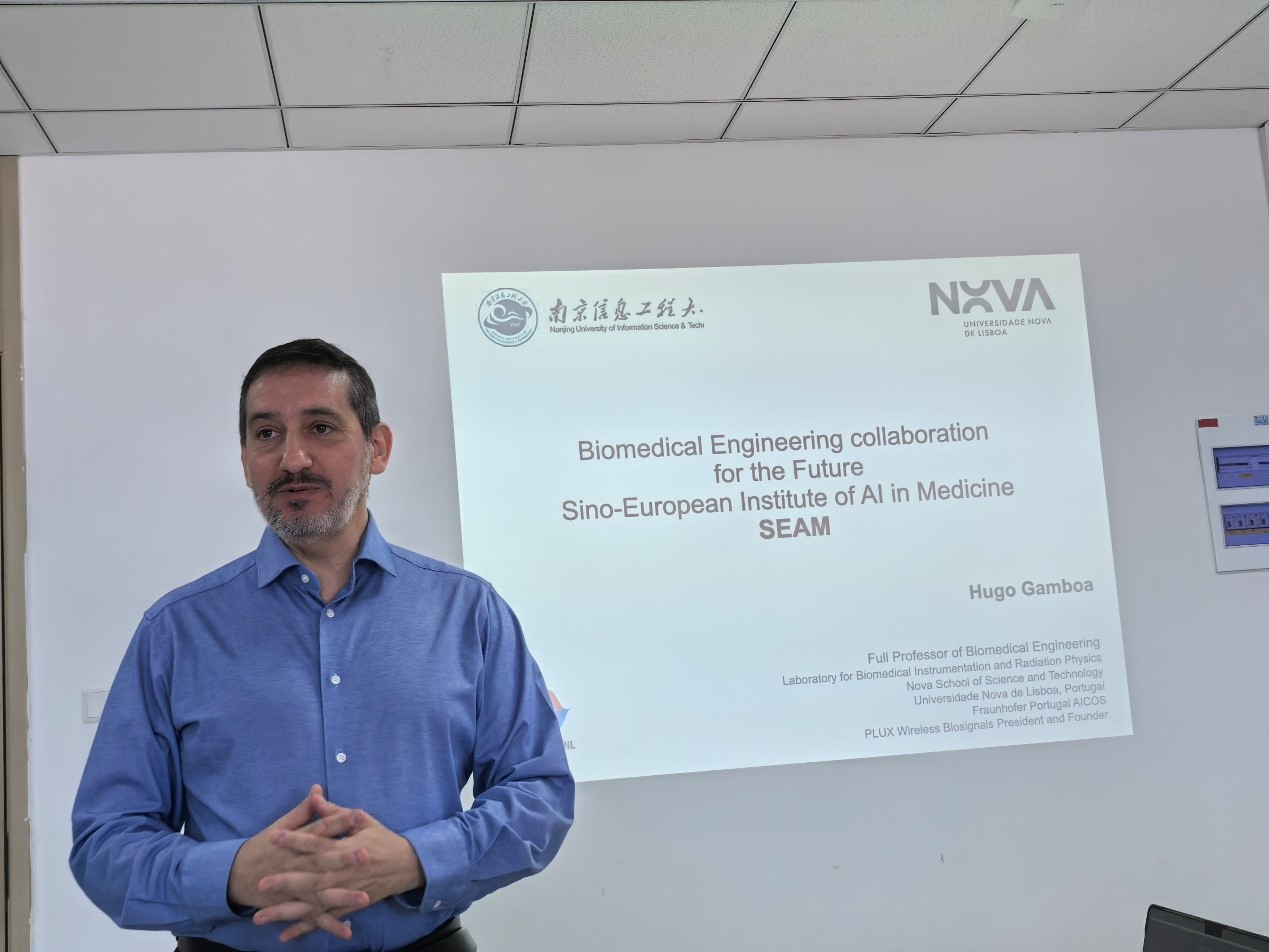
The Jiangsu Provincial Key Laboratory of Intelligent Medical Image Computing, in collaboration with the Institute of Instrumentation, Biomedical Engineering, and Radiation Physics of the Universidade Nova de Lisboa, Portugal, has signed a strategic cooperation agreement to establish the Sino-European Institute of AI in Medicine (SEAM). The institute was officially inaugurated in Nanjing on October 28, 2024. This milestone moment brings new opportunities for the integrated development of medicine and artificial intelligence, and will vigorously promote comprehensive cross-disciplinary cooperation between Nanjing University of Information Science and Technology and well-known European universities, top research institutes, and excellent industrial incubators.
The establishment of SEAM will not only promote the exchange of researchers and high-level talent training between China and Europe, but also implement a series of in-depth collaborative research, development, and technology transformation in key areas. SEAM focuses on the perception and processing of multi-source heterogeneous physiological signals based on wireless sensors, especially non-invasive wearable physiological signals as the entry point, supplemented by environmental sensing signal perception, to achieve collaborative sensing and application. The core research objects include traditional physiological signals such as electrocardiogram, electromyogram, and electroencephalogram, as well as emerging fields of human physiological sensing that are in the ascendant, such as the eyes, stomach, and skin. SEAM will also rely on the rich experience of the Key Laboratory of Intelligent Medical Image Computing in analyzing two-dimensional image signals and structured data to study the application of multi-source heterogeneous data in wearable + image, paving a "China-Europe path" for the diversity of data collection, processing, modeling, and application in medical artificial intelligence. In terms of industry-university-research cooperation, SEAM is committed to developing multi-dimensional physiological signal acquisition devices and intelligent decision-making assistance that are non-invasive, highly integrated, wearable, compact, with excellent signal quality and stable transmission, and linked with video sensing to achieve an integrated big data acquisition scheme and platform.

On the morning of October 29th, Professor Hugo Gamboa from the Universidade Nova de Lisboa in Portugal was invited to deliver an academic report titled "The Prospects of Extensive Sino-European International Cooperation in the Field of Biomedical Engineering" at the Jiangsu Provincial Key Laboratory of Intelligent Medical Image Computing. Teachers and students from the key laboratory attended the academic report and engaged in lively discussions with Professor Hugo on various topics, including the acquisition of biological signals and wearable biosensing technology.

